Space
Sign up for our newsletter
We summarize the week's scientific breakthroughs every Thursday.
-
 Astronomy
AstronomyFirst known exoplanets have few counterparts
The first known exoplanets were discovered around pulsars — probably one of the least likely places to have been found, astronomers now say.
-
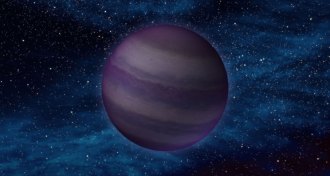 Astronomy
AstronomyTwo stars were once considered coldest known
Two stars once thought to be the coldest known are actually scorching compared with some truly frigid brown dwarfs.
-
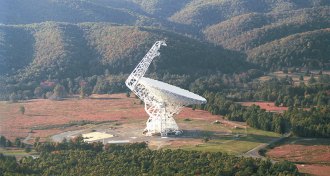 Astronomy
AstronomyGo to Green Bank to listen to the stars
Visitors to the Green Bank Telescope in West Virginia get a close-up with the world’s largest movable land object.
-
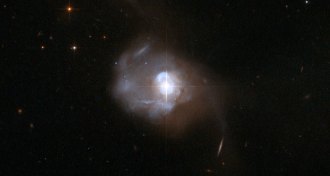 Astronomy
AstronomyNearby quasar may be home to dynamic duo
A pair of black holes left over from a galaxy collision might live in the nearest quasar to Earth.
-
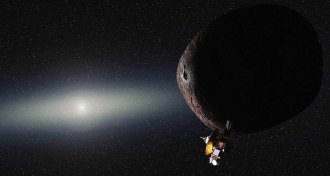 Planetary Science
Planetary ScienceLife after Pluto: New Horizons to head for Kuiper belt boulder
The New Horizons spacecraft has a second target in the Kuiper belt: an icy boulder dubbed 2014 MU69.
-
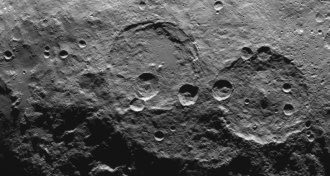 Planetary Science
Planetary ScienceMountains, craters revealed in latest images of dwarf planet Ceres
The Dawn spacecraft sent back postcards from Ceres that show off the dwarf planet’s varied terrain.
-
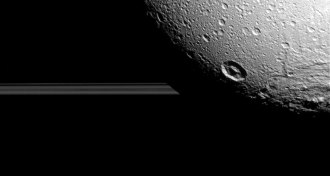 Planetary Science
Planetary ScienceFlyby of Dione yields stunning pictures of icy Saturn moon
Saturn’s moon Dione shows off its ripping landscapes during the Cassini spacecraft’s final flyby.
-
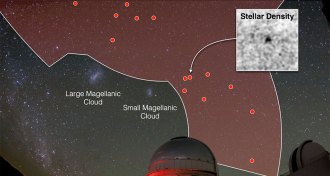 Astronomy
AstronomyEight more galaxies found orbiting the Milky Way
The dozens of satellite galaxies that orbit the Milky Way make excellent laboratories for studying dark matter.
-
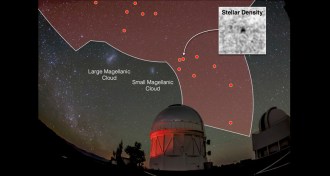 Astronomy
AstronomyEight more galaxies found orbiting the Milky Way
The dozens of satellite galaxies that orbit the Milky Way make excellent laboratories for studying dark matter.
-
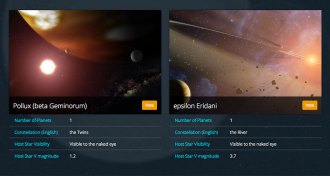 Astronomy
AstronomyChoose Ninja, Cervantes or Rosalind as names for exoplanets
Names for 20 exoplanets are in the hands of a discerning online audience.
-
 Planetary Science
Planetary ScienceComet 67P, Rosetta spacecraft cozy up to the sun
Comet 67P is shooting off brilliant jets of gas and dust as it swings in close to the sun, giving scientists clues to the space rocks chemical composition.
-
 Neuroscience
NeuroscienceShifting views of brain cells, and other fresh perspectives
The details emerging from the latest work on glial cells are sure to yield more insights as scientists continue their struggle to understand the mind.
By Eva Emerson